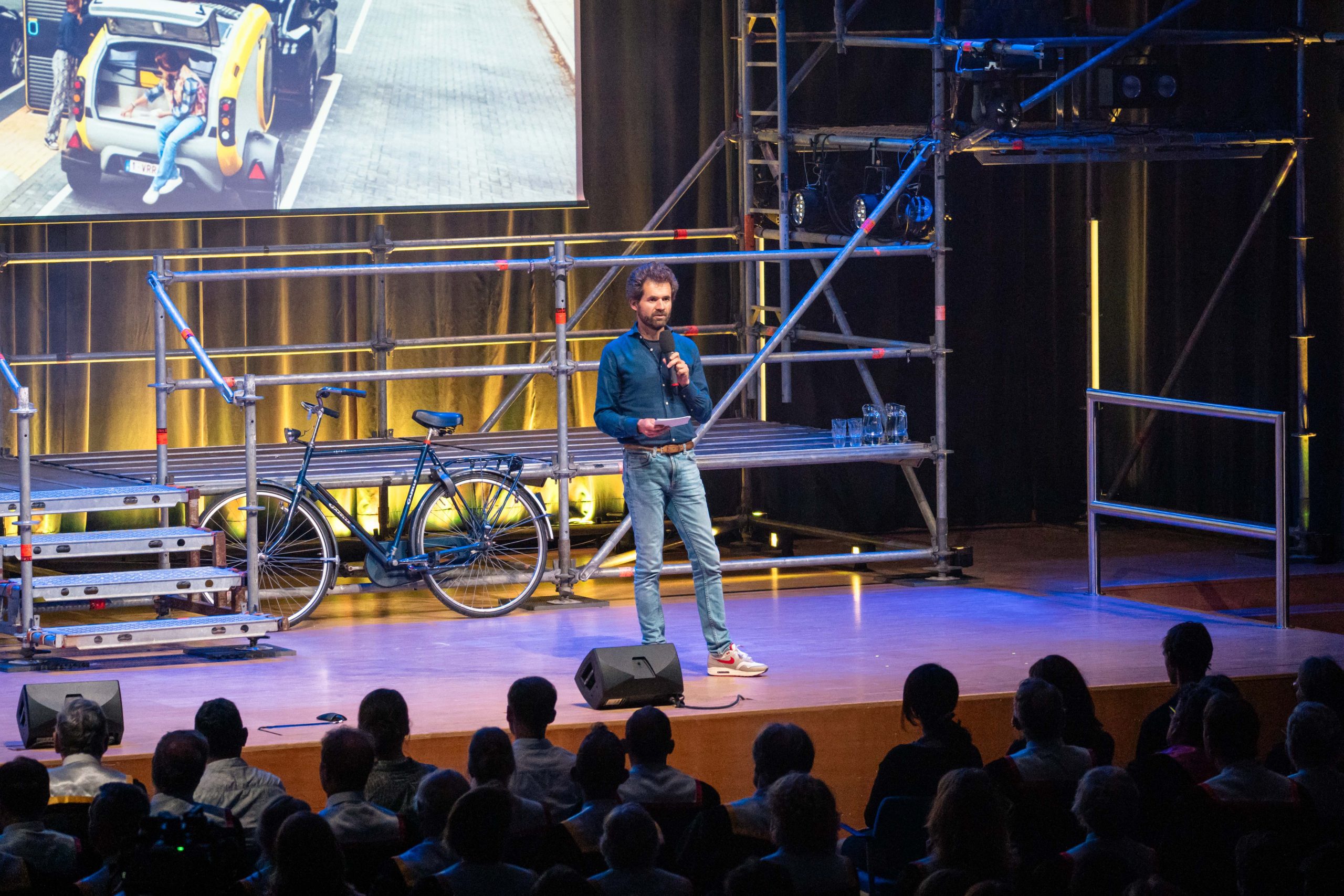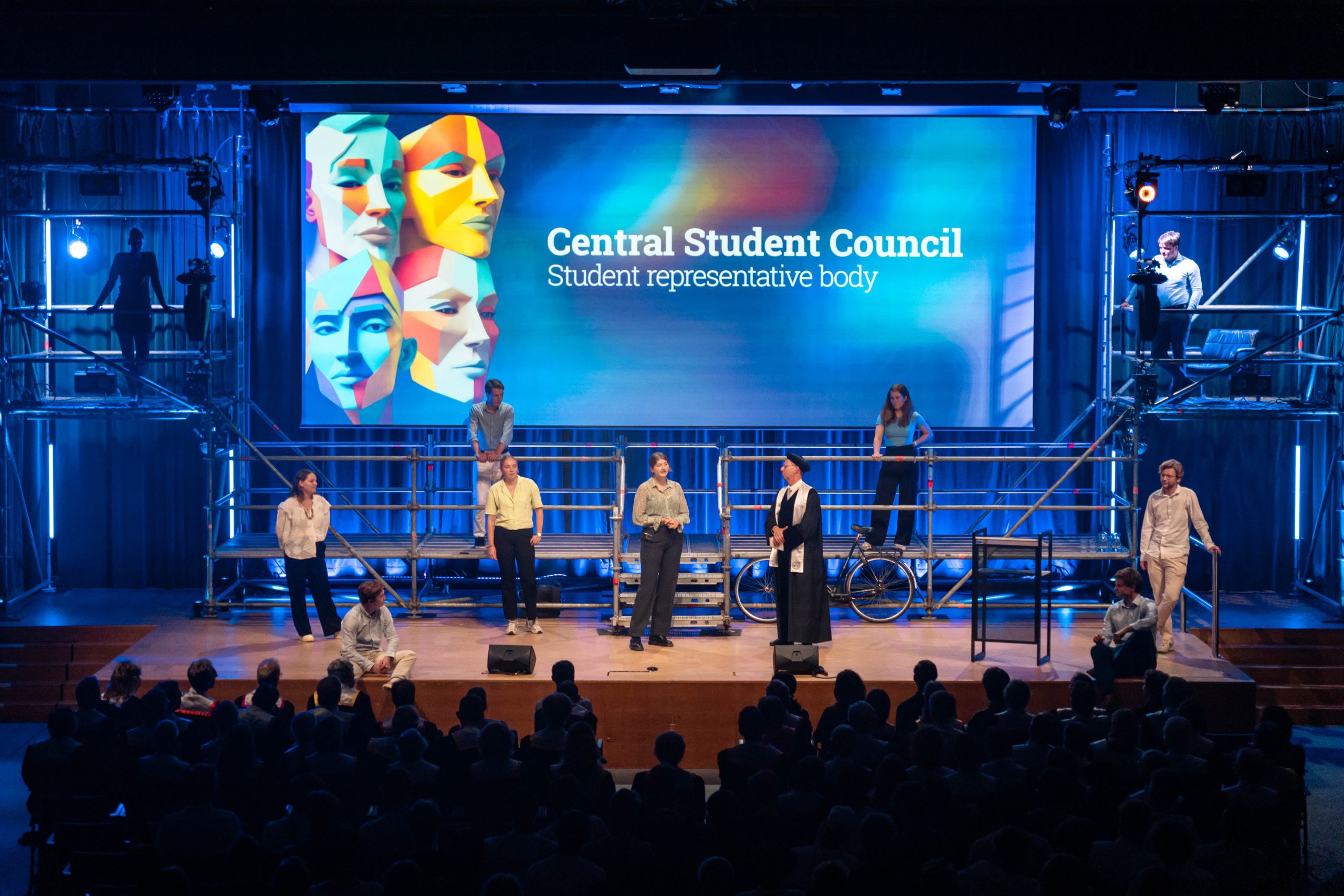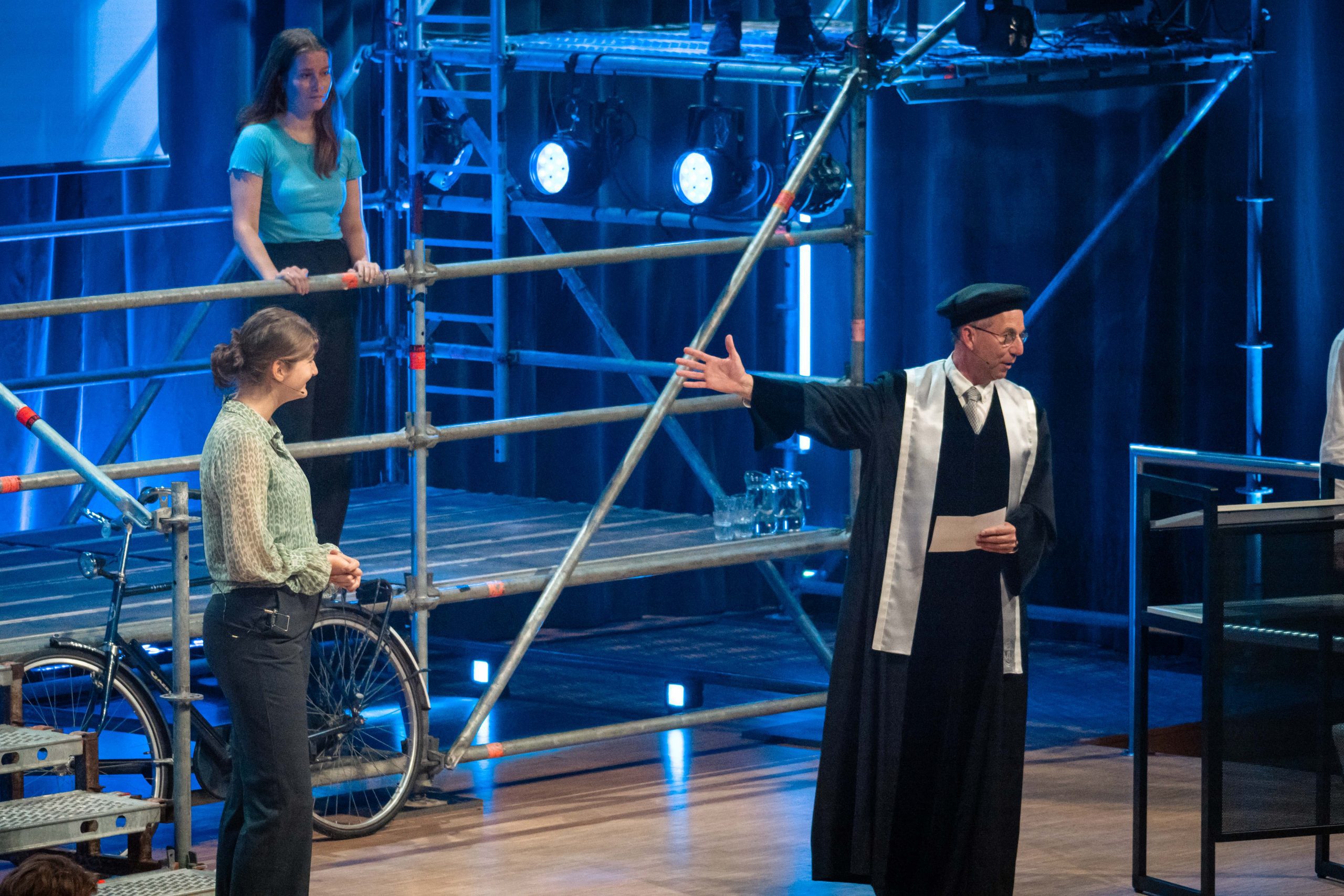Success stories and complex problems, along with music and dance, were the ingredients of the opening of an ‘honest and sustainable’ academic new year for TU Delft on 2 September.
Vice-rector Rob Mudde invited the central study council onto the stage. (Photo: Thijs van Reeuwijk)
Professors in gowns, other staff members scattered around, senior students, but mostly a lot of first years. As every year, the Aula was the setting of the opening of the academic new year on Monday afternoon, 2 September. The main goal of the opening is to be an inspiring welcome for all the young newbies at TU Delft. The loud volume and sharp light on the stage were overwhelming for some of the still timid students.
They were presented a mix of successful start-ups, societal problems – sorry, ‘challenges’ – and music and dance (techno rap band Ode to the Mind). These have become the standard ingredients of the event. What was new this year was that Vice Rector Magnificus Rob Mudde, in anticipation of Prinsjesdag (the official reopening of Parliament) expressed some concerns. These included the looming cutbacks on higher education; limits on the number of students from abroad; and, the enforcement of fines for students taking a long time to complete their studies.
Theme of the month: diversity and inclusion
As its theme this year, TU Delft chose the somewhat general ‘engineering the future’. Mudde also named the topic of equity, diversity and inclusion. “TU Delft has become much more diverse and everyone wants to create an inclusive environment,” he stated. He announced that October will be themed ‘Equity, Diversity & Inclusion’ month, and there will be courses and workshops. The words of a virtual presenter, “Thank you, Professor Muddy”, reverberated through the auditorium after his introduction.

Listen to supporters
After that, success stories were told by Michel Langezaal, Irek Roslon and the Epoch IV Dream Team. The Epoch student team is working on designing useful AI tools and it won an international award this year. The AI model that the students made uses satellite images to accurately predict the growth of seaweed (kelp) along the coast.
‘At TU Delft, you learn to solve problems with minimal help’
Irek Roslon, a doctoral candidate at the Faculty of Applied Sciences, designed a nano-fabric drum with a layer of graphene and called it a SoundCell. It makes the rattling, rumbling and humming of some bacteria audible. And the silence that follows when antibiotics take effect can also be heard. The first application of the SoundCell is the screening of antibiotics in hospitals. His advice to the students is to “Share your crazy ideas with others”.
The other success story was related by Michel Langezaal. “I sat here, where you are sitting, 25 years ago.” He established a company called FastNed to make it easier to drive electric vehicles. The main problems at the time were not so much technical as financial. It was hard to find financing for scaling up until Langezaal started listening to supporters rather than to consultants. He says that “At TU Delft, you learn to solve problems with minimal help. This gives a feeling of self-confidence if you want to set up something yourself.”
Student Council

At the end of the ceremony, Mudde invited the 10 new members of the Student Council on to the stage. Its Chair, Step Kruisinga, briefly explained what the Student Council does. “We represent students to the Executive Board and talk to staff members about education and psychological health. Stuff like that.” Mudde calls the Student Council “the eyes and ears of the Executive Board in terms of student affairs”. After that he wished everyone a “fair and sustainable new academic year”.
- The opening can be watched on YouTube
Minister Bruins calls the cutbacks ‘painful’ and ‘ugly’
In his speech at the opening of the academic year in Rotterdam, Eppo Bruins, the Minister of Education, emphasised the difficult position he is in given the forthcoming cutbacks to education. He called it “ugly, painful and not my idea”.
The Minister said that he could not distance himself from the cutbacks, but that he was in discussions with the Universities of The Netherlands (UNL), The Netherlands Association of Universities of Applied Sciences and other bodies, and with the Cabinet on how to do this as wisely as possible. He wants to accept responsibility at this difficult point in time. “It is exactly now that the Netherlands needs a minister that knows how important education, culture and academia are. Someone who knows how to uphold what is valuable.”
‘I do not want to be the minister that pulls out the last block’
During his speech, there were calls from the audience not to economise. Annelien Bredenoord, Rector at Erasmus University, compared academia to a Jenga tower. If the Cabinet removes some of the critical blocks, the tower will wobble seriously. Fewer international students and less money for young academics will lead to less innovation and less economic growth.
Bruins tried to combine his responsibilities over a hard policy with a message of hope and a fighting spirit. “I do not want to be the minister that pulls out the last block,” he said. (HOP, OL)
Do you have a question or comment about this article?
j.w.wassink@tudelft.nl


Comments are closed.